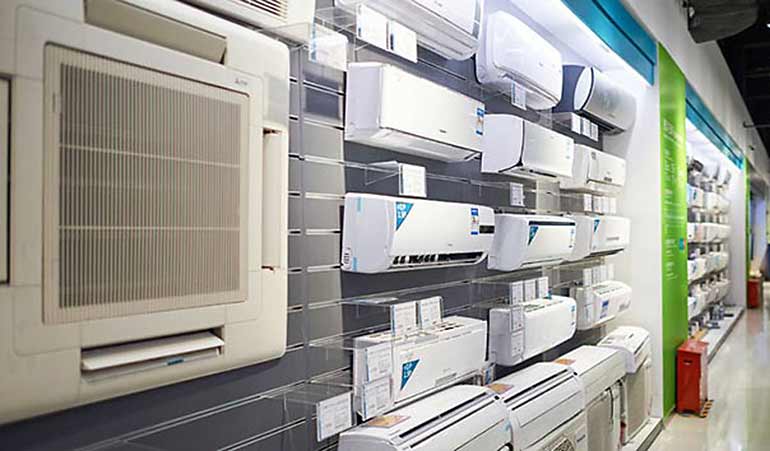
US Air Conditioning: Keeping Cool and Comfy
Introduction
As the scorching summer heat rolls in, staying cool and comfortable becomes a top priority for many Americans. This is where air conditioning comes to the rescue, providing a welcome reprieve from the sweltering weather. In this article, we’ll explore the world of US air conditioning systems, their benefits, energy efficiency, common issues, and how to choose the right one for your needs.
The Importance of Air Conditioning
Air conditioning is not just a luxury but a necessity, especially in regions with extreme temperatures. Beyond offering comfort, it plays a vital role in maintaining a healthy indoor environment. Proper cooling can help prevent heat-related illnesses and improve sleep quality, leading to enhanced productivity and overall well-being.
Understanding US Air Conditioning Systems
Central Air Conditioning
Central air conditioning is a popular choice for larger homes and commercial spaces. It cools the entire building through a network of ducts and vents, providing consistent and even cooling. While installation might be more complex, central AC offers convenience and efficient cooling.
Window Air Conditioning Units
Window AC units are a budget-friendly option for cooling individual rooms. They are easy to install and suitable for smaller spaces. However, they might not be as energy-efficient as central systems and can obstruct windows.
Ductless Mini-Split Air Conditioners
Ductless mini-split ACs are versatile and allow zone cooling. They consist of an indoor unit connected to an outdoor compressor, requiring no ductwork. These systems are energy-efficient and provide more control over room temperature.
Energy Efficiency and Cost Savings
When investing in an air conditioning system, energy efficiency should be a top consideration. Energy-efficient AC units not only lower electricity bills but also reduce your carbon footprint. Look for systems with high SEER ratings (Seasonal Energy Efficiency Ratio) for optimal efficiency and cost savings.
Common Air Conditioning Issues and Solutions
Even the best air conditioning systems might encounter issues over time. Being aware of common problems and their solutions can help keep your AC running smoothly.
Insufficient Cooling
If your AC isn’t cooling effectively, it might be due to a clogged air filter, refrigerant leaks, or a malfunctioning compressor. Regular maintenance and cleaning can resolve many cooling issues.
Poor Airflow
Obstructed air vents or a faulty blower motor can lead to poor airflow. Cleaning vents and replacing filters can improve air circulation.
Strange Noises
Unusual sounds like rattling or squealing may indicate loose parts or fan issues. Contacting a professional technician can diagnose and fix these problems.
Leaks and Condensation
Water leaks and excess condensation can be caused by clogged drain lines or refrigerant leaks. Promptly addressing these issues can prevent further damage.
Thermostat Problems
Inaccurate temperature readings or unresponsiveness could be due to thermostat malfunctions. Calibrating or replacing the thermostat might be necessary.
Regular Maintenance and Air Quality
To ensure the longevity and efficiency of your air conditioning system, regular maintenance is crucial. Schedule professional inspections, clean filters, and keep the outdoor unit free from debris. Moreover, maintaining good indoor air quality promotes a healthier living environment.
Smart Air Conditioning Technology
Advancements in technology have revolutionized the way we interact with air conditioning systems.
Wi-Fi-Enabled Thermostats
Wi-Fi-enabled thermostats allow remote temperature adjustments through smartphone apps, providing convenience and energy-saving benefits.
Home Automation Integration
Integrating your AC with a smart home system allows seamless control and energy management, optimizing cooling efficiency.
Energy Usage Monitoring
Some modern AC units come with energy usage monitoring features, enabling you to track consumption and make informed decisions.
Eco-Friendly Alternatives
For eco-conscious individuals, there are sustainable alternatives worth considering.
Evaporative Cooling
Evaporative coolers, also known as swamp coolers, use water evaporation to lower indoor temperatures. They are energy-efficient and environmentally friendly.
Solar-Powered Air Conditioning
Solar-powered AC systems harness the sun’s energy to cool your home, reducing dependence on traditional electricity sources.
Choosing the Right US Air Conditioning System
Selecting the right air conditioning system requires careful evaluation of various factors.
Size and Capacity
Ensure that the AC system’s cooling capacity matches the size of the space it needs to cool for optimal performance.
Energy Efficiency Ratings
Look for systems with ENERGY STAR ratings, indicating higher energy efficiency and potential savings on utility bills.
Noise Levels
Consider noise levels, especially for bedrooms and quiet spaces, to avoid disturbances.
Warranty and Customer Support
Choosing a system with a solid warranty and reliable customer support ensures peace of mind and assistance when needed.
Hiring a Professional Air Conditioning Service
When it comes to installation, repairs, or maintenance, hiring a professional air conditioning service is often the best choice.
Research and Recommendations
Check reviews, ask for recommendations, and verify the credentials of the service provider.
Qualifications and Experience
Ensure that the technicians are licensed, experienced, and knowledgeable about your specific AC system.
Service Contracts and Pricing
Review service contracts and pricing structures to avoid unexpected costs.
DIY Air Conditioning Tips
While some tasks require professional help, there are certain maintenance steps you can take on your own.
Cleaning and Maintenance
Regularly clean the outdoor unit and indoor vents to prevent debris buildup.
Air Filter Replacement
Change air filters regularly to maintain optimal air quality and system efficiency.
Ensuring Proper Ventilation
Ensure that vents and registers are not obstructed for better airflow.
Benefits of Optimal Air Conditioning
Optimal air conditioning offers a range of benefits beyond just cooling your space.
Improved Indoor Air Quality
A well-maintained AC system helps filter out allergens and pollutants, leading to better indoor air quality.
Health Benefits
Maintaining comfortable indoor temperatures contributes to better sleep and overall health.
Increased Property Value
An efficient and well-maintained AC system can increase the value of your property.
Conclusion
US air conditioning systems play a crucial role in keeping us comfortable during hot summers while contributing to overall well-being. By understanding the different options available, considering energy efficiency, and ensuring proper maintenance, you can enjoy the benefits of a reliable and efficient cooling system.





0 comments
Write a comment